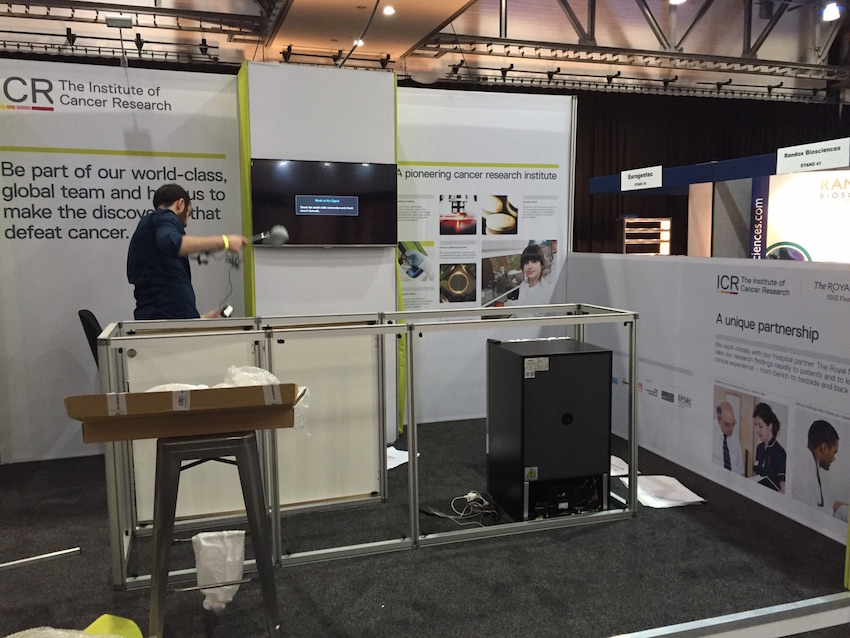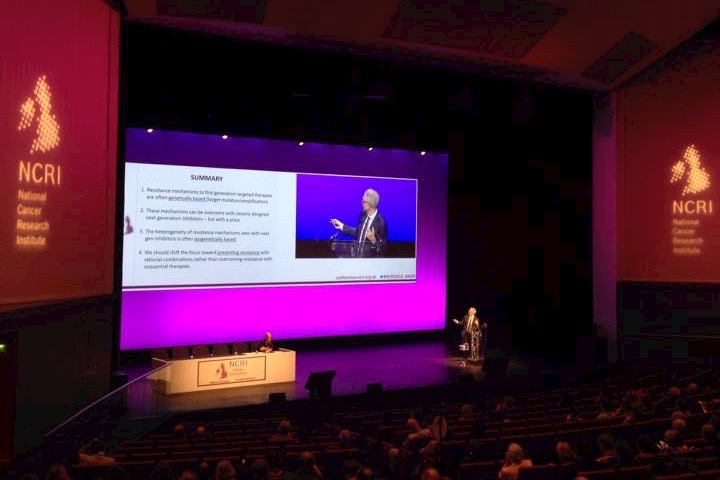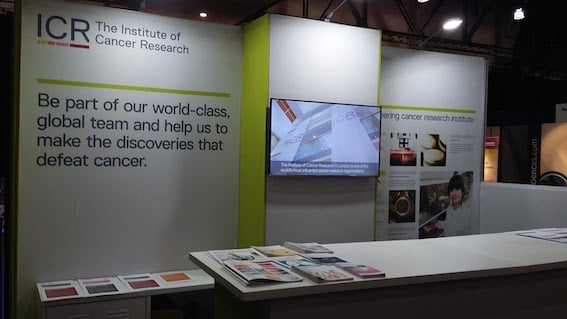Getting up at 8am on a Sunday morning isn’t normally my idea of fun. But our communications team here at The Institute of Cancer Research is decamping en masse to Liverpool for the next few days to the National Cancer Research Institute (NCRI) Cancer Conference – and I’m really looking forward to it!
We are joining hundreds of scientists, policy makers, and charity and industry representatives, who are coming together to discuss the latest and most exciting developments in cancer research, clinical practice and policy.
Our day starts rather more prosaically though, with several hours of intense manual labour assembling the ICR’s shiny new exhibition stand, designed to raise awareness of our wonderful, world-leading research.

ICR sponsored talk
Thankfully, I was set free to attend the first plenary lecture of the conference, which was sponsored by the ICR. Dr Charles Sawyers from the Memorial Sloan Kettering Cancer Center gave a fantastic presentation on new research from his lab into mechanisms of resistance to hormone therapy for prostate cancer.

Dr Sawyers’s lab is trying to find out how prostate cancer resists treatment in tumours where there is no disturbance to androgen receptor function. His team has found that the glucocorticoid receptor is switched on in men with prostate cancer who are treated with the new hormonal drug enzalutamide, and that it can take over the function of the androgen receptor.
Hormone therapies have for some time been first-line treatments for prostate cancer, but long-term use of these drugs ultimately leads to resistance. In around 90 per cent of cases, the mutations that allow tumours to resist therapy are in the gene that the drug targets – the androgen receptor gene.
Scientist and clinicians have been finding ways to avoid generating resistance mutations in this gene with some success.
But Dr Sawyers presented some fascinating data suggesting that tumours are now finding new ways to resist treatment, by bypassing the target altogether instead.
That in turn is sparking new thoughts from cancer researchers about how to adapt treatment once again, as part of an evolutionary arms race to prevent the new resistance mechanisms from emerging.
More to come
Dr Sawyers’s talk was a great start to the conference, but there is lots more to come in a programme jam-packed with interesting talks, workshops and debates, heavily featuring researchers from the ICR and The Royal Marsden.
Look out for Professor Uwe Oelfke, who is giving a keynote talk about cutting-edge developments in image-guided radiotherapy on Tuesday. Among those chairing sessions are Dr Marco Gerlinger, Dr Nicola Valeri, Professor Nandita deSouza and Dr Udai Banerji, while Professor Nazneen Rahman is chairing and speaking at a panel discussion.
We’ll be reporting back so you don’t miss a thing! Check out our website for new blog posts and follow @ICR_London and #NCRI2015 on Twitter for live updates.

comments powered by